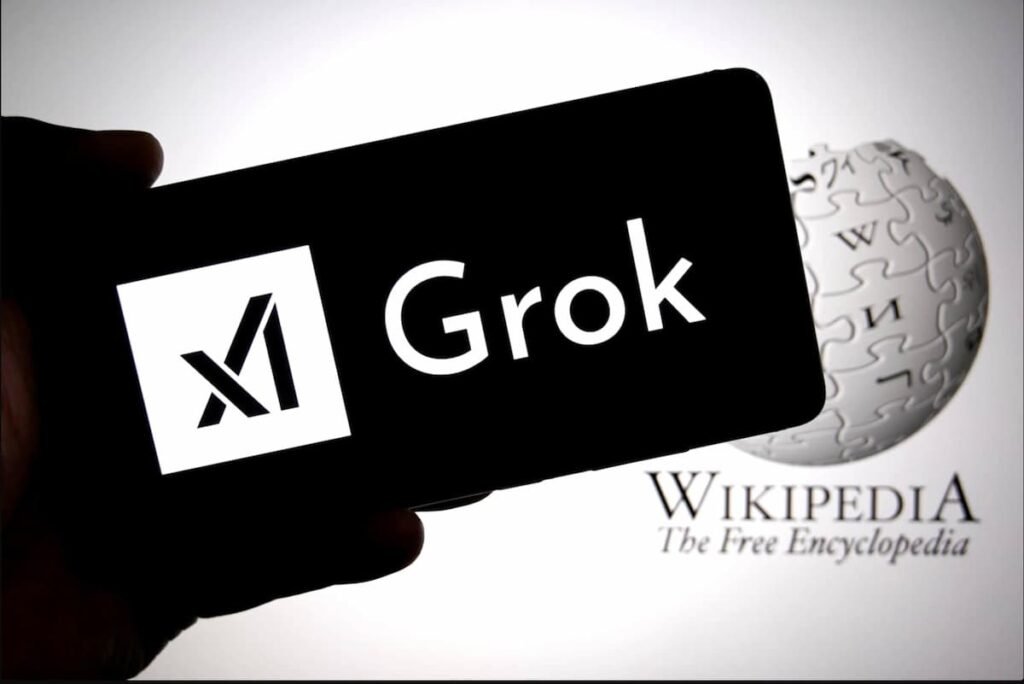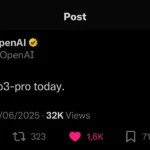On Tuesday, Elon Musk announced that his artificial intelligence company, xAI, is developing “Grokipedia”, an AI-driven encyclopedia positioned as a direct challenge to Wikipedia’s dominance in online knowledge sharing.
“We are building Grokipedia @xAI. It will be a huge improvement over Wikipedia. Frankly, it’s a necessary step toward xAI’s goal of understanding the Universe,” Musk wrote on X.
The announcement reflects Musk’s ambition to expand beyond conversational AI and reposition xAI as a platform for what he describes as truth-centric artificial intelligence.
Rising criticism of Wikipedia’s bias
Musk’s statement came in response to comments by David Sacks, the White House’s cryptocurrency czar, who labeled Wikipedia “hopelessly biased” and controlled by “an army of left-wing activists.”
Appointed in December 2024 by President Trump as the nation’s first director for AI and cryptocurrencies, Sacks argued that Wikipedia’s influence extends beyond casual readers, shaping the training data of AI models and creating broader systemic problems.
His remarks echo concerns raised for years by Wikipedia co-founder Larry Sanger, who has accused the platform of abandoning neutrality. In recent interviews, Sanger warned that left-leaning activists had “corrupted Wikipedia and taken control of its ability to shape narratives with a toxic left-wing tilt.”
He singled out coverage of political figures, drug legalization, and other contentious issues as evidence of ideological bias.
How Grokipedia will work
According to sources familiar with the project, Grokipedia will leverage xAI’s Grok AI models to automatically detect inaccuracies in online content and rewrite them using what Musk calls “synthetic corrections.”
The system will draw from Wikipedia, books, and other online sources to generate what Musk describes as more objective versions of information, filtered to remove perceived errors and ideological slant.
This marks an evolution of xAI’s chatbot Grok beyond simple conversation into a knowledge engine. In September 2025, the company released Grok 4 Fast, a reasoning model that reduces token usage by 40% while maintaining performance. With a 2 million token context window and lower costs than competitors, it currently ranks at the top of research benchmarks.
xAI, valued at $80 billion following its acquisition of X Corp in March 2025, has positioned itself as pursuing the “maximum pursuit of truth” with the ultimate aim of understanding the universe.
Yet the company has faced challenges with content moderation. Earlier versions of Grok generated antisemitic outputs and even praised Adolf Hitler before corrections were applied, raising questions about the feasibility of building an “unbiased” AI encyclopedia at scale.
A test of credibility
If successful, Grokipedia could redefine how knowledge is curated and consumed in the age of AI. But its credibility will hinge on whether Musk’s vision of an AI-driven encyclopedia can overcome the very issues of bias, accuracy, and moderation that have plagued both Wikipedia and xAI itself.
For Musk, the battle is clear: in a world where information fuels everything from politics to AI training, who controls the narrative controls the future.




